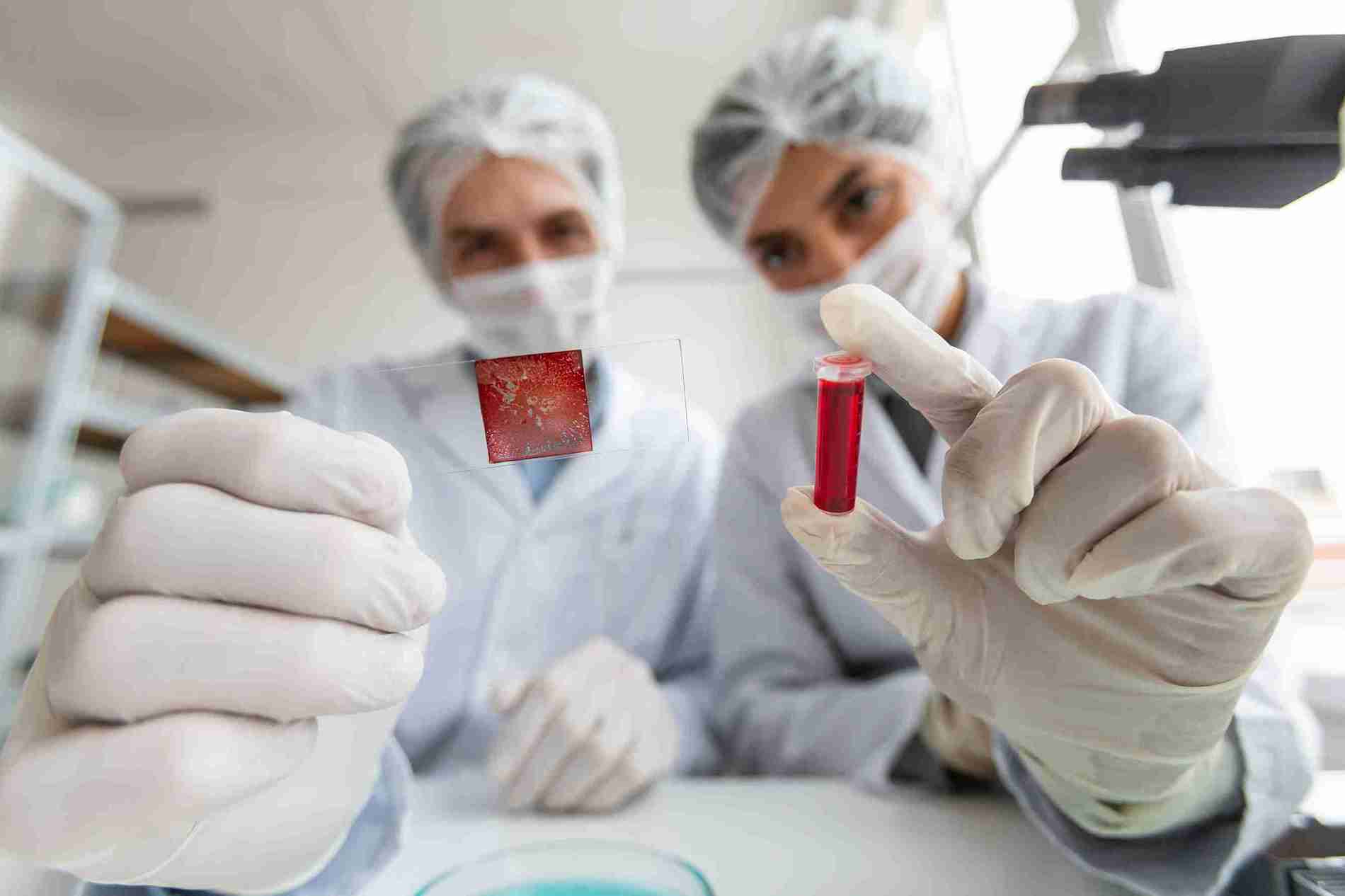
Clotting is a natural and important process that helps protect us. Blood clots are formed when a person gets a cut or an injury to stop the bleeding and initiate the healing process. This ensures that the person is saved from fatal complications from excessive blood loss. However, this process becomes impaired for people with blood clotting disorders. In such cases, the blood clots may form even when there isn’t any injury, and this may lead to serious health issues, like strokes, DVT, etc. Abnormal blood clotting may be caused by the presence of underlying health conditions, such as autoimmune diseases.
In this article, we will examine the impact of blood clotting disorders caused by autoimmune diseases.

Blood clotting, also known as coagulation, is a process whereby a clot forms over a damaged or injured part of the body. Let’s take a quick look at this process.
Blood flows throughout the body via blood vessels. Cuts, scratches, or bruises from accidents, like a fall, can damage the blood vessels, and blood may begin to leak out. If this isn’t stopped in time, there could be severe blood loss. To stop this leak, the body initiates the clotting process.
First, the muscles in the vessel wall contract, causing the vessel to narrow. This helps reduce blood flow and limits the amount of blood that leaks out. At the same time, platelets in the blood are activated. These platelets are drawn to collagen, which becomes exposed when the blood vessel is damaged. The cells lining the vessel release von Willebrand factor, which helps the platelets stick to the collagen and to one another. The platelets then begin to change shape and release signals to attract more platelets, consequently forming a temporary plug that closes the wound.
To strengthen this plug, clotting factors convert a protein called fibrinogen into fibrin, which forms a mesh that holds everything in place. This firm blood clot effectively stops the bleeding, and it will go away when the wound has completely healed.
We’ve often heard the saying that too much of a good thing can become harmful. This is exactly what happens when there is excessive blood clotting. Blood clotting disorders occur when the body forms blood clots too easily or inside veins and arteries, often without any reason to do so. Thrombophilia, antiphospholipid syndrome (APS), deep vein thrombosis, and pulmonary embolus etc., are examples of coagulation disorders.
'Hypercoagulable state' or 'thrombophilia' are other names for this condition. People with this medical condition are at a higher risk of having strokes, heart attacks, etc. This is because blood clots may abnormally develop inside the blood vessels and block the flow of blood, consequently hindering the transport of oxygen. These abnormal blood clots can also break free and travel to other parts of the body, such as the neck, lungs, heart or brain, and cause serious issues when they block blood flow to that organ.
A person may be more prone to blood clotting disorders if:
● There are others in the family with a history of abnormal blood clotting.
● There have been repeated miscarriages.
● There’s thrombosis in the veins of the liver, kidney, brain, etc.
● There has been a stroke at a young age.
● Blood clots continue to occur without any apparent reason.

Blood clotting disorders may occur due to genetic conditions, such as the Prothrombin gene mutation and Factor V Leiden. However, there are cases where such disorders are acquired as a result of other medical conditions.
Because clotting disorders can lead to serious and even life-threatening complications, early diagnosis and proper treatment are essential. To manage them effectively, it’s important to understand what causes these disruptions in the first place—and, unfortunately, in some cases, the root of the problem lies within the immune system itself.
Sometimes, the body’s defence system, which is supposed to protect us from harm, mistakenly attacks healthy parts of the body. This is known as an autoimmune response, and when this happens, it can interfere with normal blood clotting. This is known as autoimmune blood clotting, and it’s one of the lesser-known but serious causes of abnormal clot formation. Antiphospholipid syndrome (APS) is one such autoimmune disease that has been known to produce abnormal blood clots.
Antiphospholipid syndrome is an autoimmune disease. This is a chronic condition that triggers the body to make more blood clots than needed.
In individuals with antiphospholipid syndrome (APS), the immune system produces abnormal antibodies. Normally, antibodies help defend the body by identifying and attacking harmful invaders like viruses or bacteria. However, in APS, the immune system targets specific proteins that are bound to phospholipids, a type of lipid found in cell membranes.
These antibodies wrongly identify these proteins as threats and begin to attack them. This reaction can trigger the blood to clot more easily than it should. Over time, this increases the risk of autoimmune thrombosis, where clots form in veins and arteries, even in the absence of injury.
There are three main types of antibodies involved in APS: lupus anticoagulant, anticardiolipin, and anti-β2 glycoprotein I. A person with APS may have one, two, or all three of these antibodies in their blood.
Interestingly, some people may have these antibodies without showing any symptoms. While it’s clear that these antibodies are behind APS, experts still don’t fully understand why the immune system starts making them in the first place.

Antiphospholipid syndrome usually affects females, typically between the ages of 30 and 40. They may have a genetic predisposition towards this disorder, and their family may have other members afflicted with it. APS patients may also have other autoimmune disorders like rheumatoid arthritis or lupus.
Most people never experience any apparent symptoms. However, the presence of livedo reticularis (skin that looks mottled with a bluish-red, lace-like pattern underneath) has been noted in a few cases.
Frequent headaches, stomachaches, chest pain, redness or swelling or sudden pain in the arms and legs, etc., can also be signs to watch out for.
Repeated miscarriages with no apparent cause are often why APS tests are ordered. The screening for APS involves testing blood samples for the presence of three antiphospholipid antibodies: lupus anticoagulant, anticardiolipin, and anti-β2 glycoprotein I. If the test comes back positive for any one of these, and the same results are seen in a follow-up test three or so months later, then APS is confirmed.
Anticoagulant medications (blood thinners) like Warfarin, Heparin and Aspirin are usually prescribed to manage APS. These medications may have to be taken throughout one’s life.

Being diagnosed with blood clotting disorders is a scary experience, and it can feel even more overwhelming when the culprit is one’s own immune system. However, with early diagnosis and medications, this disorder can be managed to a great extent, thus improving the outcome.

Autoimmune diseases, such as APS, can cause acquired forms of blood clotting disorders.

Autoimmune blood clotting disorders are diagnosed via blood tests that check for the presence of three antiphospholipid antibodies: lupus anticoagulant, anticardiolipin, and anti-β2 glycoprotein I.

Autoimmune blood clotting disorders can be fatal because abnormal blood clots may form within blood vessels, restricting the flow of oxygen-carrying blood to various organs.

In most cases, autoimmune blood clotting disorders, like APS, are hereditary and close family members may have this disorder.